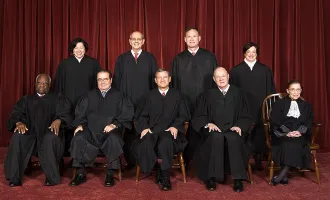
Heathy For Who? Healthy for Who? A Voter Guide to Props 34 and 35
November is fast approaching, and with it, the opportunity to vote on Propositions in California.
Props serve a key democratic role between the public and lawmakers, allowing voters to directly impact policymaking in the state. Of the 10 props on the ballot this election cycle, two pertain to healthcare - Prop 34 and Prop 35.
Proposition 34
Prop 34 would require certain healthcare providers to use prescription drug revenue for patients, with some providers having to spend at least 98% of their net drug sale revenue on what’s defined as “direct patient care.”
If they don’t, state licensure and tax-exemption status may be revoked. Prop 34, if passed, would only apply to those that spend at least $100 million on expenses other than patient care. However, there is only one organization that falls within the parameters that this Proposition would target: the AIDS Healthcare Foundation.
Prop 34 would also permit state agencies to negotiate for lower drug prices as a consolidated unit, which would increase their bargaining power considerably. This would make California the nation’s largest negotiator against pharmaceutical companies, potentially lowering prescription drug costs for many, including those enrolled in Medi-Cal.
As the cost of prescription drugs has increased considerably over the last decade (9% annually, by some estimates) Prop 34 presents an opportunity to consolidate purchasing power to combat healthcare spending growth, but it’s paired with targeted interests against the AIDS Healthcare Foundation — a major player in state and local supportive housing.
Proposition 35
Prop 35 would require the state to tax managed care plans, which aim to balance healthcare spending and quality of care received by its payers, to provide funds for Medi-Cal reimbursements specifically geared towards primary and specialty care, emergency services, family planning, and prescription drugs.
The Proposition aims to use the tax revenue to combat the lower Medi-Cal reimbursement rates received by primary care. As roughly 1 out of 3 Californians use Medi-Cal, this presents an opportunity to increase access to care at a systemic level.
Prop 35 has been endorsed by the California Medical Association, California Hospital Association, the California Primary Care Association, the California Democratic Party, and the California Republican Party.
Along with Prop 34 and Prop 35, eight other Props are up for decision by the California general public on election day, which falls on Tuesday, November 5th.



